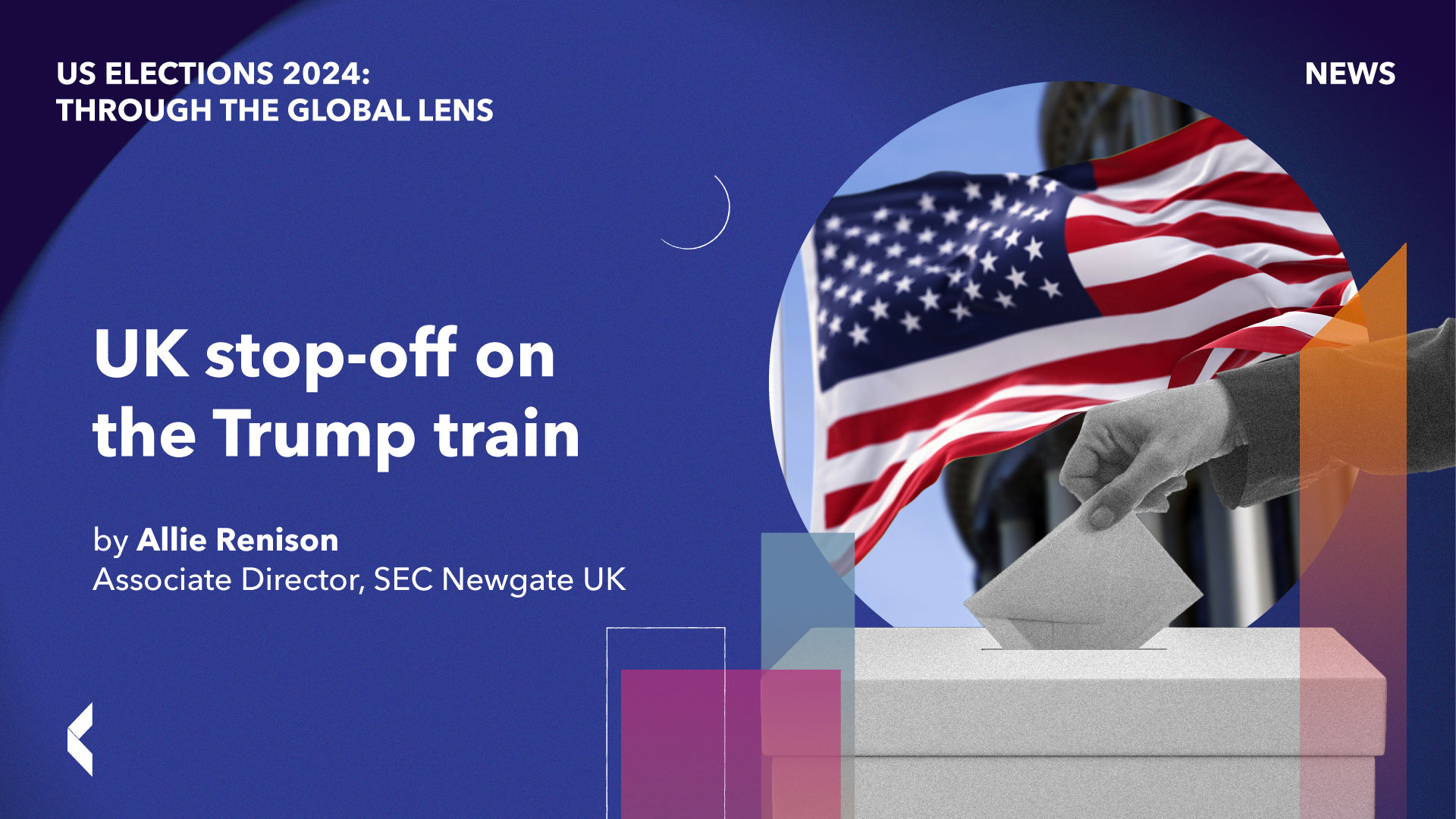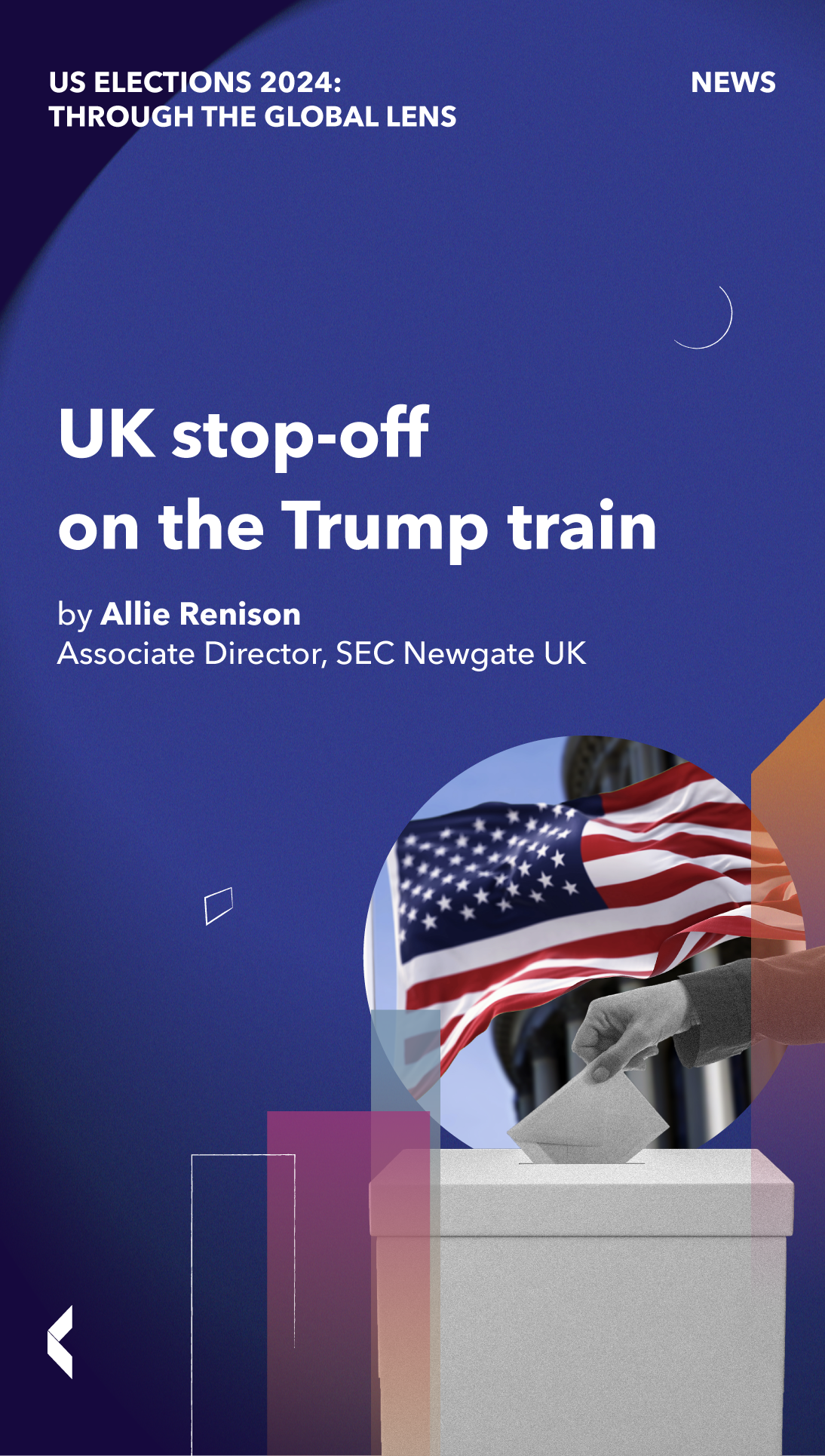About the Author
Donald Trump’s decisive election victory confirmed that persona politics is definitely back, and for better or worse we may be seeing a consolidation of that trend here in the coming years.
There are interesting parallels to draw between these two transatlantic partners looking at the recent ebbs and flows in how -and who- people voted in.
In 2020, the US electorate seemed exhausted by the unrelenting personality politics of President Trump dominating every inch of news across four years and opted instead for Joe Biden as the safe, reliable and perhaps even ‘boring’ choice. Fast forward to 2024, and it seems the majority of American people were willing to take a punt on his assertive, abrasive approach once more.
Similarly, British voters wearied by the Conservatives tearing themselves apart over Boris Johnson and his list of successors were ready for the quiet reliability that Labour and Keir Starmer offered. But one might anticipate that by the next UK election, buoyed by the boldness of new party leader Kemi Badenoch (should she last in post), charisma may well matter once more.
The current government is unsurprisingly hoping that the boldness of its actual policy offerings will be enough to offset the Prime Minister’s more staid personal style. But dealing with Trump 2.0 could reawaken a desire even on these more reserved isles for more authentic, assertive politics – even if polling shows that the Donald’s brash style does not go down so well on this side of the pond.
Whether consequentially or on purpose, President Trump’s preference for deals over diplomacy could leave Labour faced with some tough choices on how it approaches foreign relations. Warm words about ties and allies are unlikely to suffice – he will want the UK to puts its money where its mouth is on showing solid support, and is going to be only too happy to wield the threat of tariffs to shore up his position.
Trump may take less issue with the UK’s longstanding support for Ukraine in its own right, but may want to see backing for his favoured negotiated approach to a ceasefire with Russia. On China, he will expect to see more alignment to the US’ position on trade and economic security. And Labour’s much-vaunted reset with the EU may well come under pressure from his economic expectations – a US/UK trade deal was being negotiated before Trump lost in 2020. We may be back to the Brexit era of “us or them” before we know it.
For business, it’s the predictable unpredictability of President Trump that makes planning so difficult. He has a penchant for defensive trade declarations and decisions, only to be walked back by countries offering up negotiating concessions in exchange for being spared his wandering tariff eye. His willingness to respond to political slights with economic measures means companies will have to navigate politics more closely than ever.

